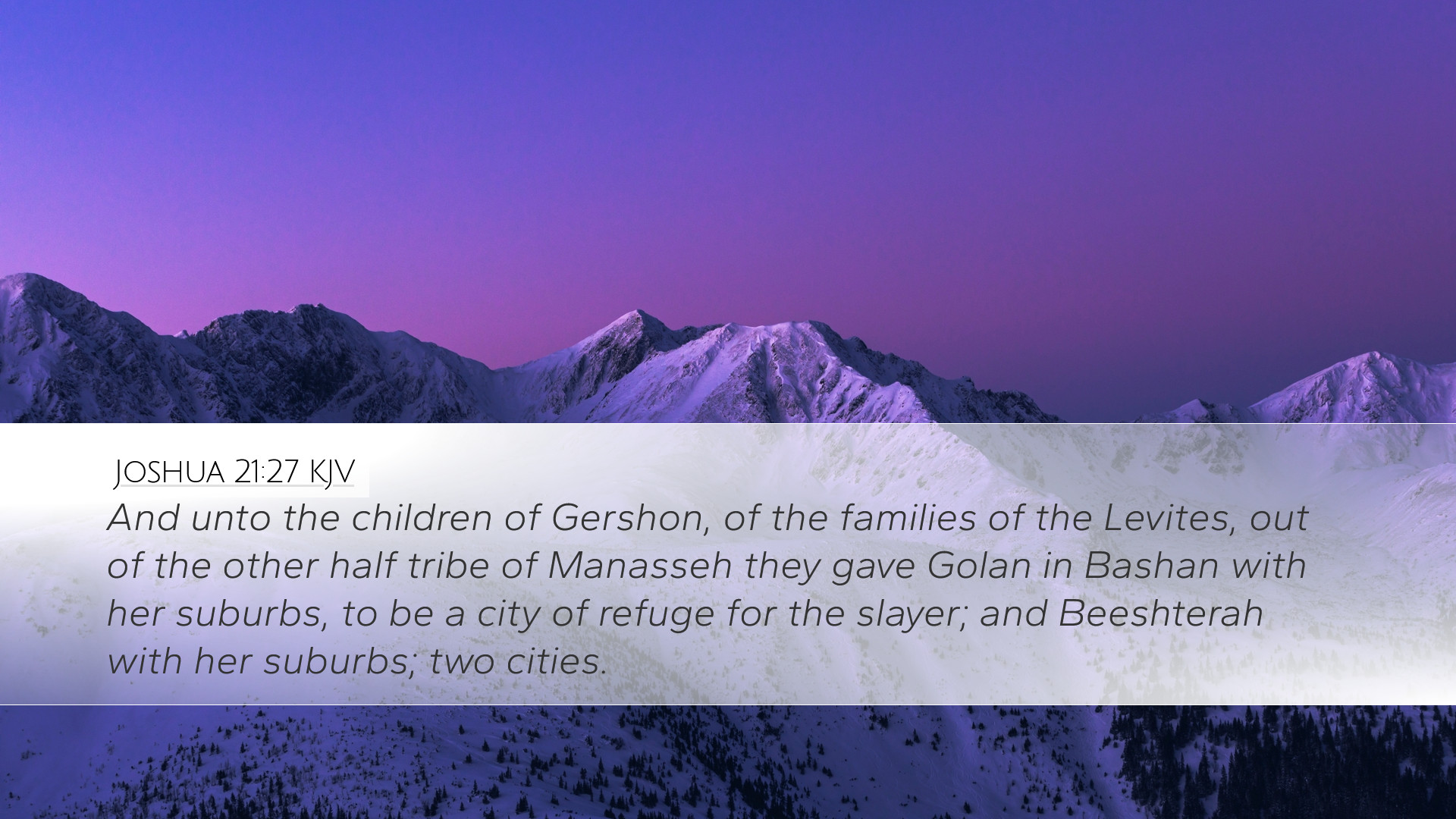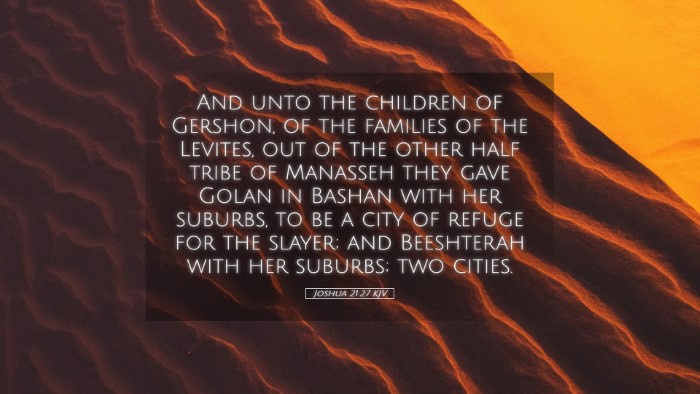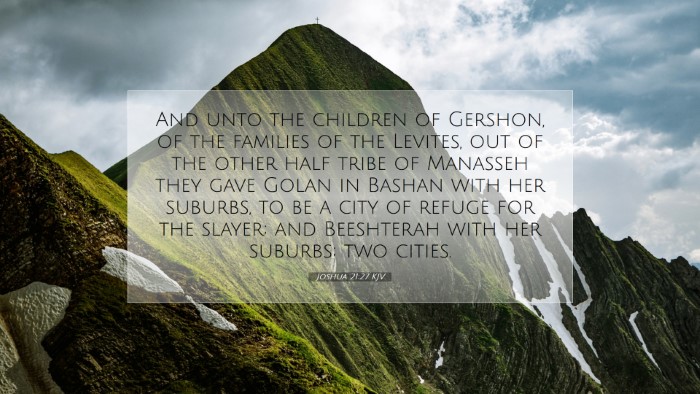Commentary on Joshua 21:27
The verse in Joshua 21:27 states, "And out of the half tribe of Manasseh, the cities which are designated for the Levites were Golan in Bashan and Ashtaroth, and their common lands." This verse is part of a crucial narrative describing the establishment of Levitical cities within the territories of the tribes of Israel.
Contextual Analysis
To understand Joshua 21:27, it is essential to recognize the broader context of this chapter, which delineates the cities designated for the Levites, who were set apart for service to God. They received cities scattered throughout the tribal territories, thus ensuring that priestly duties could be fulfilled across the nation.
Significance of the Levites
The Levites, descendants of Levi, had specific roles within Israel's religious life. Unlike other tribes, they were given no inheritance of land but were compensated with cities and pasture lands for their cattle. The distribution of land is deeply theological, signifying that the Lord Himself was their inheritance (Numbers 18:20).
Exegesis of Key Elements
-
Golan in Bashan: This was a city of refuge, one of the appointed cities for those who unintentionally caused harm, reflecting God’s mercy and justice. The city’s selection also symbolized a place of safety for the guilty who sought forgiveness.
-
Ashtaroth: This city had historical significance, being associated with Canaanite worship practices. The Levites taking ownership of such a city exemplifies God's sovereignty over all lands and the transformation of idol worship into the worship of Yahweh.
Theological Insights
The mention of the two cities reflects God’s pervasive grace that constitutes the heart of the Levitical towns. Matthew Henry notes that the dwelling of the Levites among the people served as a spiritual center, signifying the importance of having representatives of God scattered throughout the community.
Albert Barnes elaborates that these cities signify both asylum and access to the sacred. The allocation to the Levites amidst other tribes shows the importance of worship and spiritual guidance in communal life, thereby reinforcing God’s covenant promises.
Implications for Pastoral Ministry
This verse and its context provide critical insights for modern-day pastors and theologians. It highlights the role of spiritual leaders who are tasked with guiding congregations, akin to the Levites, who were strategically positioned among the tribes of Israel.
Pastors today can glean from the importance of being present in their communities, providing spiritual refuge and serving as conduits of God’s grace. Just as the Levites were entrusted with safeguarding and teaching the Law, contemporary ministers are called to uphold the truths of Scripture and lead by example.
Lessons for Theologians and Scholars
The intricate details contained in Joshua 21:27 and its surrounding context provide fertile ground for scholarly research. Theologically, one can explore themes of God’s justice, mercy, and provision. The historical significance of cities like Golan and Ashtaroth offers a gateway into discerning God’s redemptive history throughout Israel’s story.
This verse encourages a deeper investigation into the nature of biblical cities of refuge and the ties they have to Christ as our ultimate refuge. The Levites’ role as mediators of the covenant can prompt further theological reflection on Christ's mediatorial work, showcasing parallels and distinctions in their functions.
Conclusion
Joshua 21:27 is not merely a historical account; it serves as a reminder of the divine orchestration in the lives of God’s people. By allocating land for the Levites, God underscores the significance of faith, leadership, and community in His redemptive plan.
The church today, paralleling this ancient model, must strive to fulfill its calling to be a city on a hill—a sanctuary for those in search of refuge and a beacon of hope amidst a lost world.


